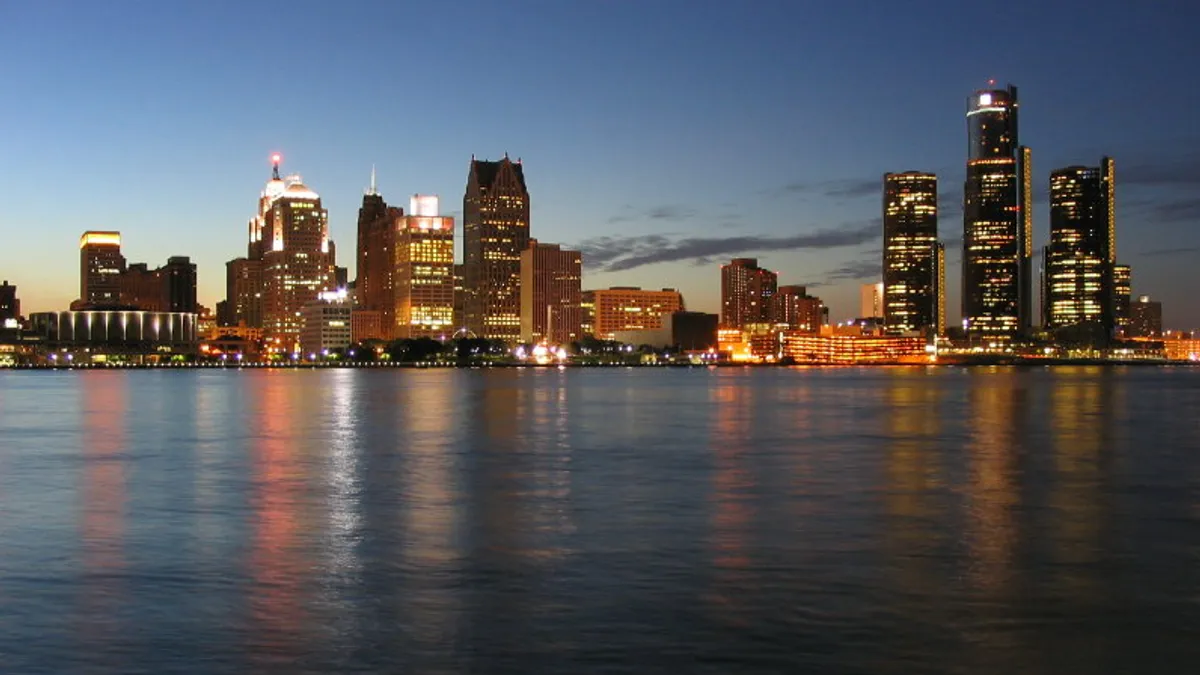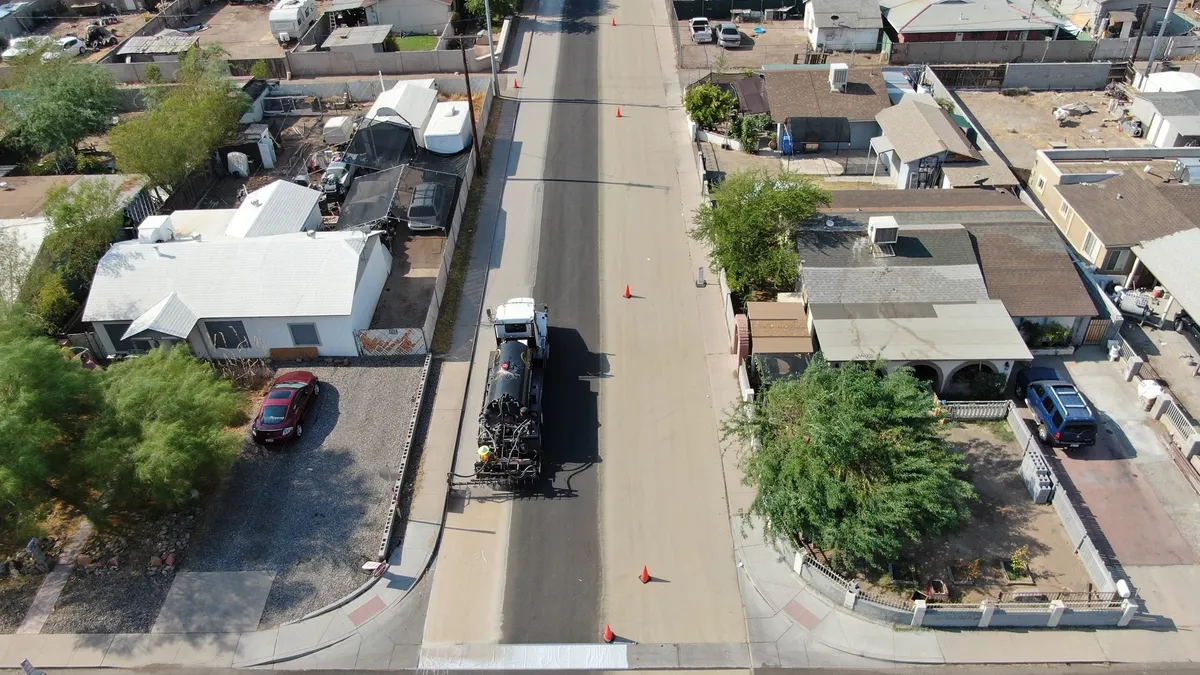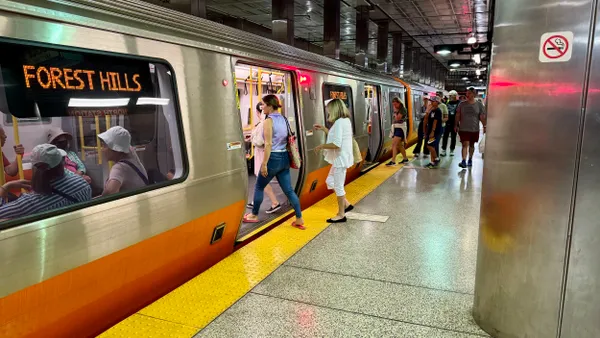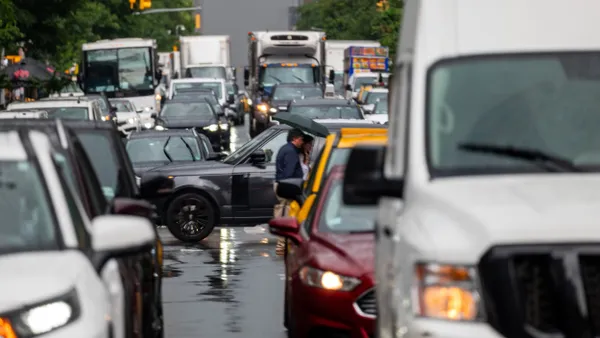Dive Brief:
- The city of Detroit will spend $100 million to overhaul nearly 100 miles of roads and bridges, according to an announcement from the city. The investments will include resurfacing of 41 miles of major roads, repairing five bridges and adding new streetscape projects in commercial corridors.
- The commercial corridors will see upgrades including wider sidewalks, landscaping and separated bike paths, the city’s public works director Ron Brundidge said at a press conference.
- Funding for the infrastructure initiative comes from state and federal road funds and city bonds, including a commercial district rehabilitation fund. The city is required to have 51% of the workforce on the project be from Detroit.
Dive Insight:
The $100 million investment continues Detroit’s long-term efforts to both upgrade and redesign its infrastructure to reflect a more diverse mobility system. The city has especially focused on making roads safer for bikers and pedestrians, including a $1 million project that cut two lanes from a seven-lane thoroughfare last year to make it easier for pedestrians and transit riders to navigate. A five-year transportation plan would increase protected bike lanes and install speed bumps and new intersection signals to increase safety.
The city also hosts a smart city installation from Miovision dubbed the "World’s Smartest Intersection," which includes sensors, cameras and connected traffic signals to maximize safety.
The latest investment will bring a similar approach to commercial districts by widening sidewalks, which will not only increase outdoor space for businesses, but make them more accessible for pedestrians and micro-mobility users, and open opportunities for the disabled community. It’s the first year of what Brundidge called a “streetscape enhancement program;” the city has funding to overhaul 23 commercial districts over the next three to five years.
Detroit’s roadway overhauls — an evolution from its auto-centric history — reflects a broader commitment by smart cities to rehab existing infrastructure to benefit all users. Cambridge, MA recently became the first city to mandate protected bike lanes, while others have done similar “lane diets” to free up more transit and biking space. Sidewalk Labs has even released a design guide for different street types that it plans to test out at its Toronto smart city development.










